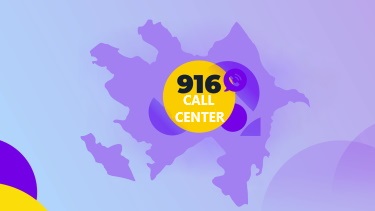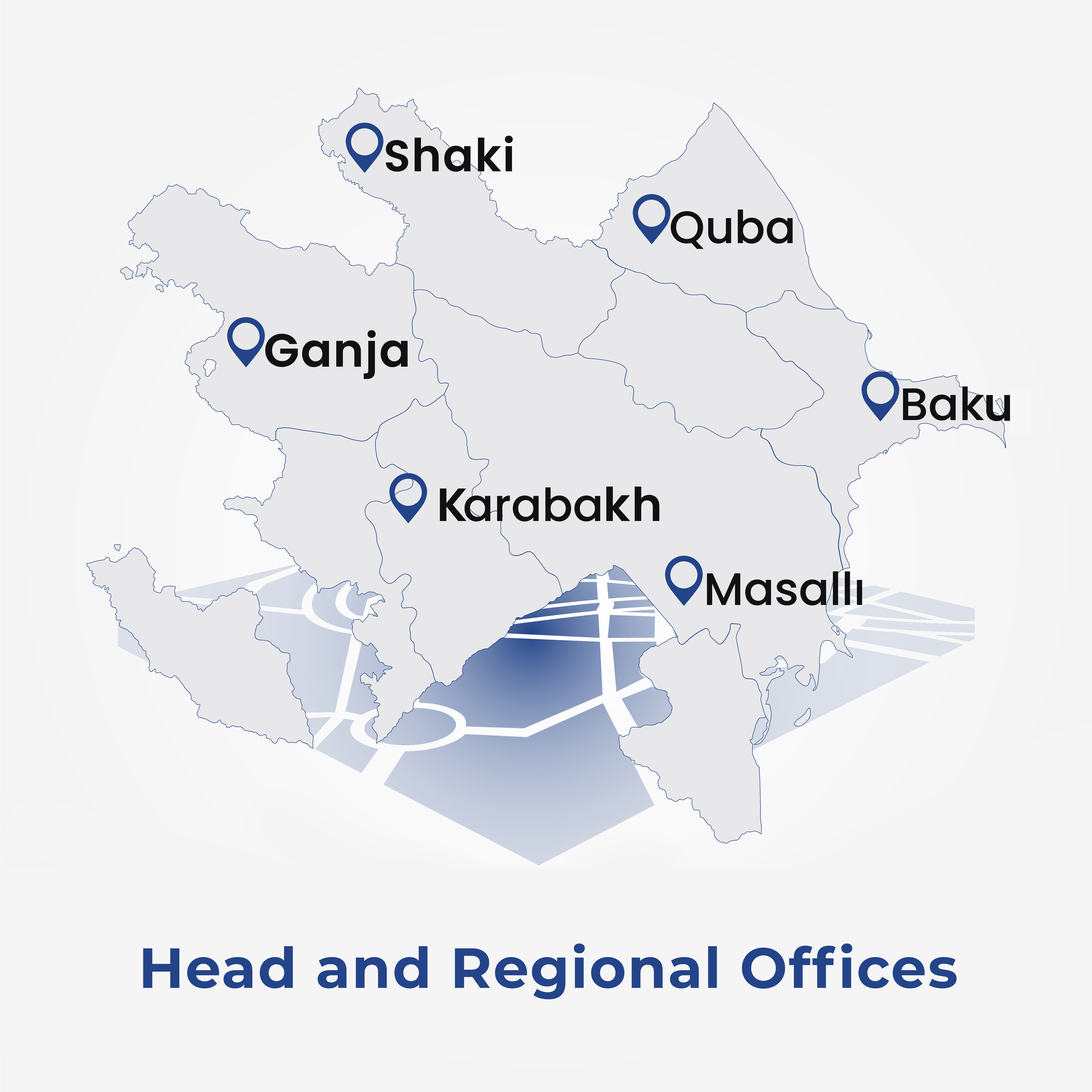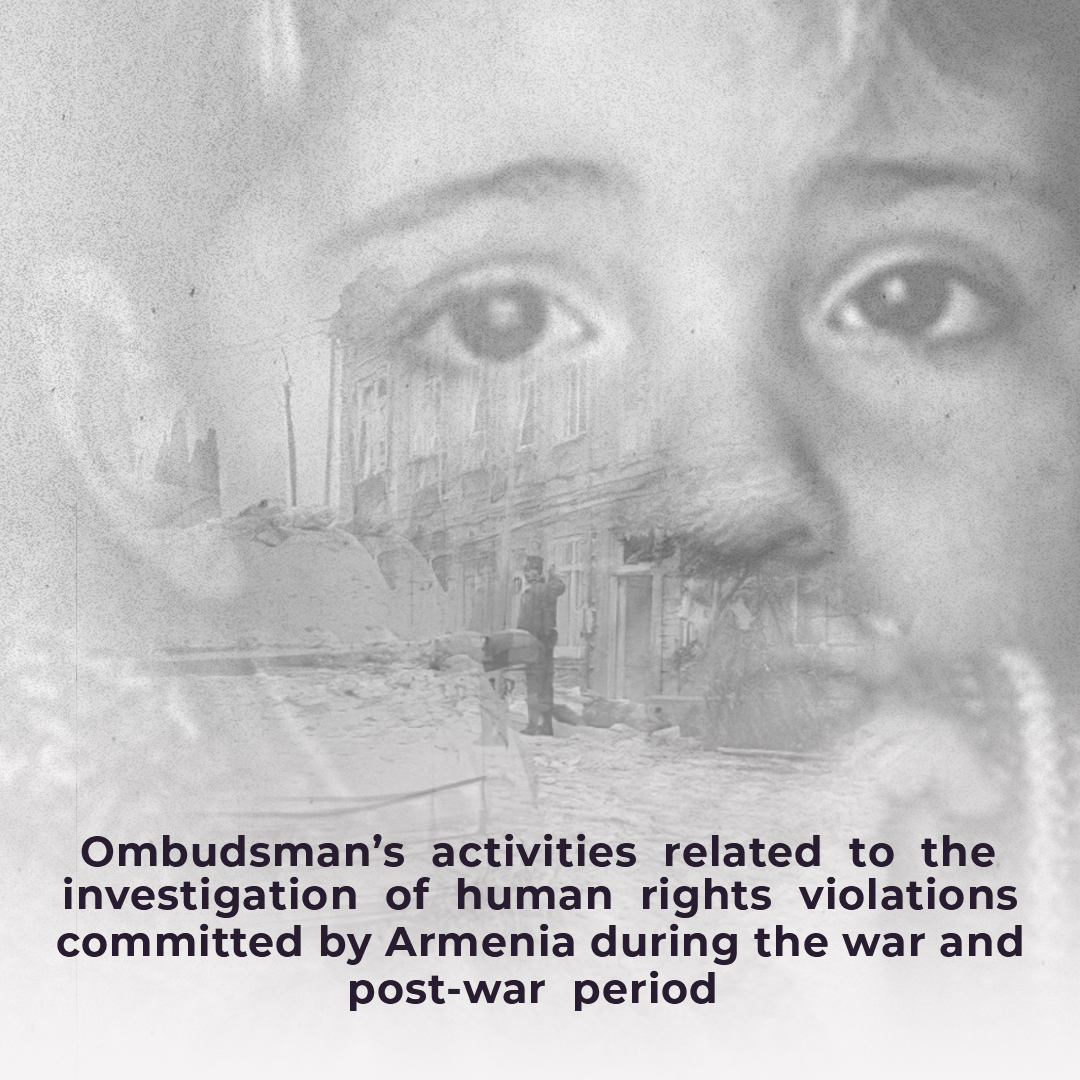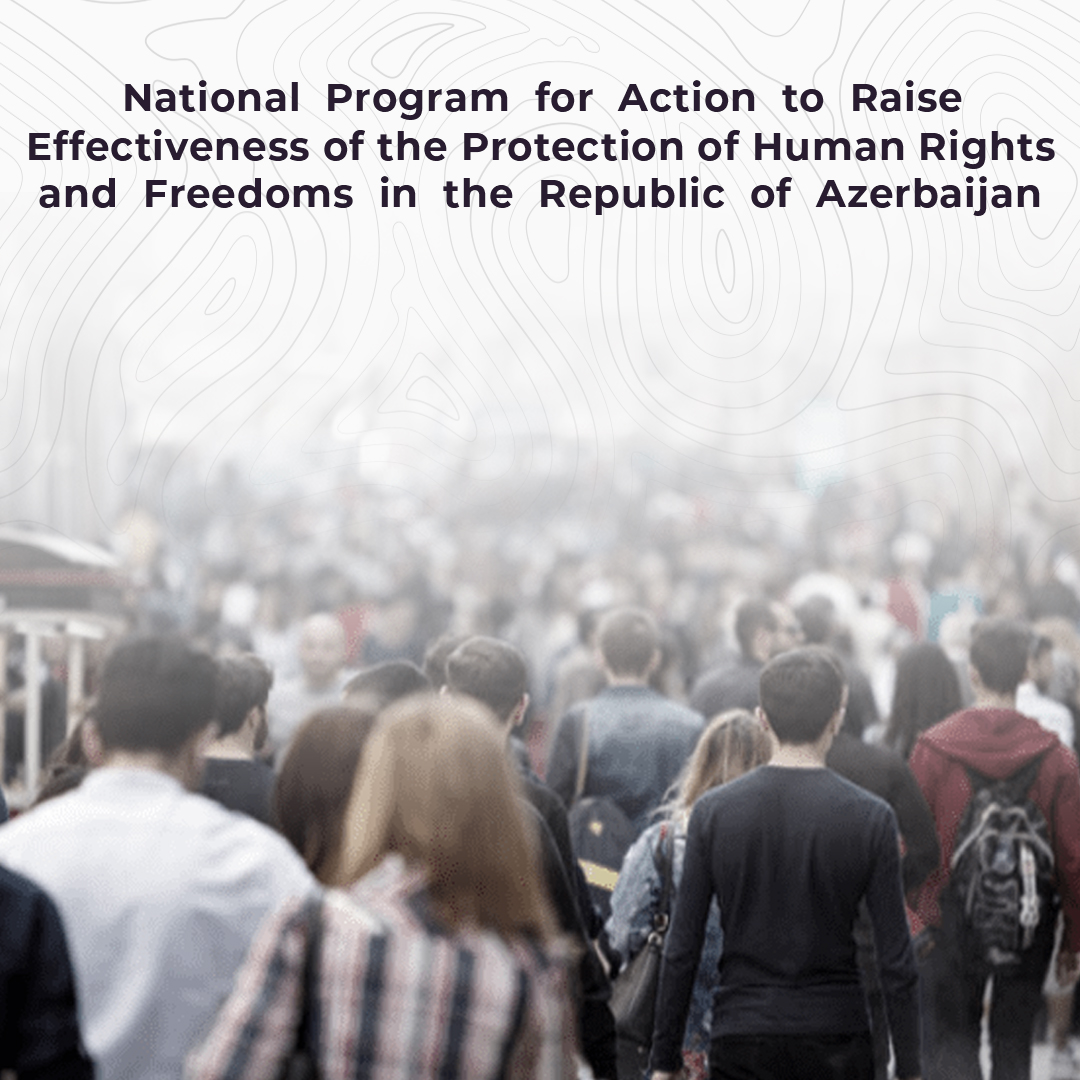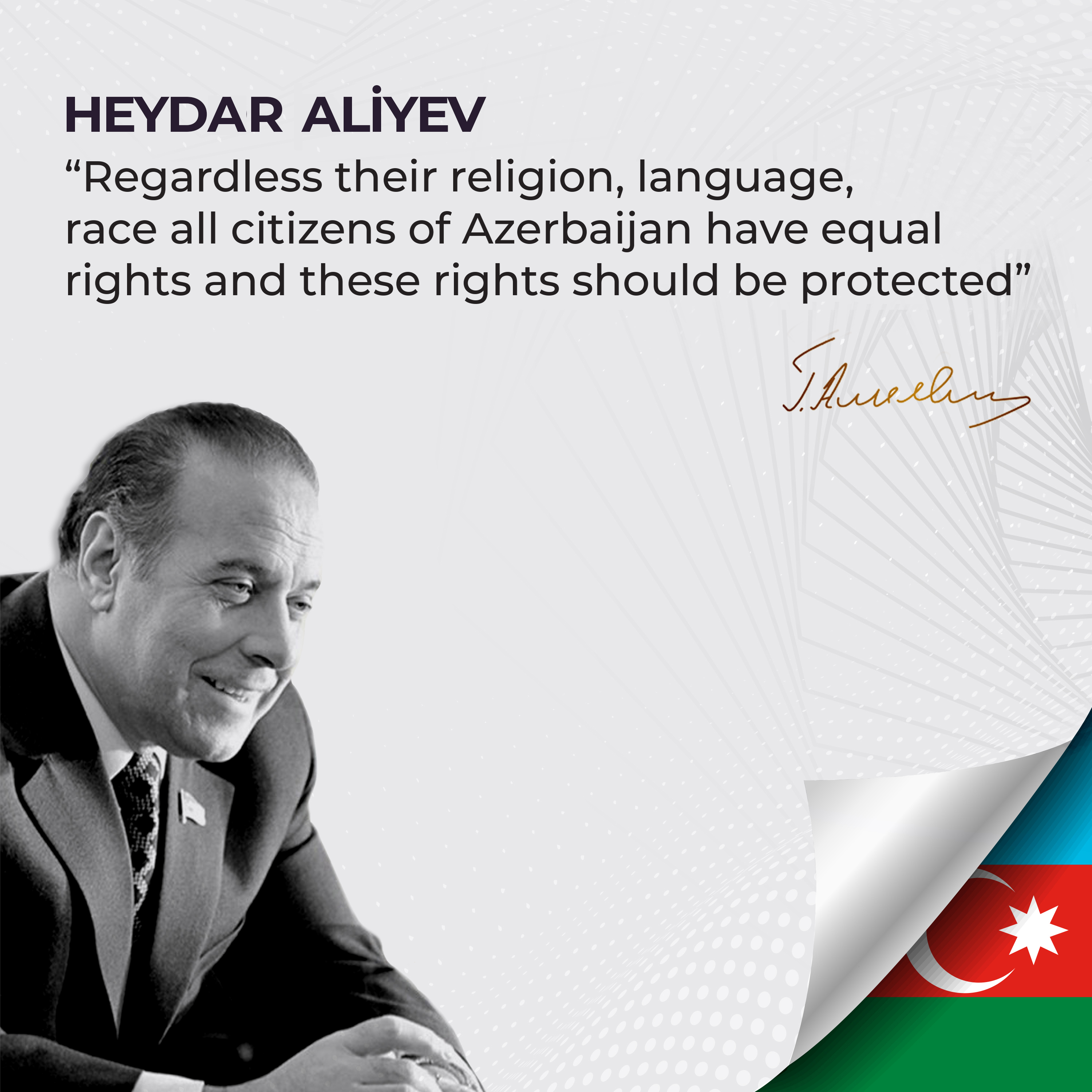
THE STATEMENT of the Commissioner for Human Rights (Ombudsman) of the Republic of Azerbaijan on the 26th anniversary of the Khojaly Genocide
14-02-2018
302 dəfə oxunub
The crime committed in Khojaly city by Armenian armed forces together with the 366th moto-artillery regiment of the former Soviet army dislocated in Khankendi at the night from the 25th to 26th February of 1992, must be recognized as genocide from the international law perspective. A lot of heavy military equipment suddenly entered the city, the criminals annihilated with a special cruelty the people who were forced to leave the city, totally destroyed and burned down the houses and social infrastructure.
During the Khojaly genocide, 613 people, including 106 women, 63 children and 70 elderly were killed; hundreds of people were severely injured; 1275 persons were taken hostages. 8 families were totally exterminated, 25 children lost both, whereas 130 children lost one parent; captives and hostages were subjected to merciless torture. Fundamental human rights of those people, first of all, the right to life, were grossly violated.
This tragedy once more confirmed ethnic cleansing, genocide and deportation policy of Armenian nationalists and their supporters against the Azerbaijani people, lasting for a long time, the purpose of which was to banish our compatriots from their historical native lands and establish “Great Armenia” state on those territories. Among these tragedies it is necessary to emphasize the genocide committed against the Azerbaijanis on March 31, 1918, distinguished for its serious consequences in the world history and the 100th anniversary of which we commemorate this year.
As a result of ethnic cleansing policy of Armenia that expanded the scope of military aggression against Azerbaijan by committing the Khojaly genocide and occupied Nagorno-Karabakh which is an integral part of Azerbaijan and adjacent seven rayons, 20,000 our citizens were killed, 20 percent of country territories were occupied, more than one million our compatriots became refugees and IDPs, their rights were severely violated. It should be noted that during the occupation, besides Khojaly, the massacres in Karkijahan, Malibayli, Gushchular, Garadagli, Agdaban villages and other settlements in Azerbaijan were committed.
Our National Leader Heydar Aliyev had a special urge on the Khojaly genocide in 1994, and in February of the same year the Milli Mejlis of the Republic of Azerbaijan gave legal and political recognition to the Khojaly genocide.
Nagorno-Karabakh and adjacent seven regions are an integral part of Azerbaijan. This is re-affirmed once again by the international law, as well as by the UN Security Council Resolutions 822, 853, 874, 884 from 1993, UNGA Resolution on “Situation on the occupied territories of Azerbaijan” dated on 14 March, 2008, Resolution 1416 from 2005 and Recommendation 1690 of the Parliamentary Assembly of the Council of Europe, as well as European Parliament's Resolution on Nagorno-Karabakh from October 23, 2013.
However, the Armenian side regularly violates the ceasefire regime and creates obstacles to the peace in the region demonstrating unconstructive position as always.
The genocide policy of Armenia against the civilian population is still continuing up to now that results in the killing of civilians, including children.
The Azerbaijani side strives for a peaceful settlement of this aggression continuing for about 30 years and for restoration of peace. President of the Republic of Azerbaijan Ilham Aliyev has repeatedly stated the necessity of resolution of the conflict within the territorial integrity of our country in accordance with the norms and principles of international law, withdrawal of occupying forces from the Azerbaijani lands and his just position from the tribunes of influential international organizations, including the UN General Assembly.
As previous years, for bringing of this genocide to the attention of the world community the Plan of Actions on commemorating the 26th anniversary of the Khojaly Genocide was affirmed by the relevant Decree and is being implemented.
“Justice for Khojaly” international campaign carried out in many countries and cities at the initiative of Leyla Aliyeva, the Vice-President of the Heydar Aliyev Foundation, plays an important role in the recognition of the Khojaly tragedy as a genocide act, and the genocide committed by the Armenians against the Azerbaijanis is condemned in many countries.
The Organization of Islamic Conference (OIC) was the first international organization that recognized Armenia as an aggressor and the Khojaly tragedy as a genocide.
The Parliaments of Mexico, Columbia, Peru, Pakistan, Bosnia and Herzegovina, Romania, the Czech Republic, Sudan, Jordan and Honduras, Guatemala and Panama, Slovenia, Djibouti and Paraguay already recognized the crime in Khojaly basing on the international legal norms.
In addition, twenty-two States of the USA namely, the State of Massachusetts, Texas, New-Jersey, Maine, New Mexico, Arkansas, Georgia, Oklahoma, Tennessee, Pennsylvania, Connecticut, Florida, Mississippi, West Virginia, Indiana, Utah, Nebraska, Hawaii, Montana, Arizona, Idaho and Nevada have also passed the related Resolutions.
This massive killing of human beings, committed by the Armenian invaders in Khojaly is an act of genocide and one of the most severe crimes. Hence, the UN General Assembly Resolution 96 (I) dated 11 December 1946, states that genocide, violating the right of people to life, damages human dignity, and deprives the mankind of the material and spiritual values created by human beings, is contrary to the spirit and aims of the United Nations, as well as to universal values and the world community condemns it.
The international legal definition of the crime of genocide was determined in the United Nations Convention on the Prevention and Punishment of the Crime of Genocide adopted by the Resolution 260 (III) of the UN General Assembly of 9 December 1948. The commitment of criminal acts, planned in advance and aimed at mass annihilation of people on the ground of their nationality in Khojaly constitutes this crime as genocide. During the aggression against Azerbaijan, all elements of the crime of genocide stated in the mentioned Convention were applied. However, unfortunately, the genocide acts against the Azerbaijani civilians throughout the history, including Khojaly genocide has not yet get its international legal-political assessment, organizers and the committers of this crimes have not been prosecuted and punished, no action has been taken in this regard.
Paying tribute to the memory of martyrs and those who died during that tragedy and guiding with the above mentioned, as well as norms and principles of international law, I declare that this crime shall be investigated, by the special international commission, recognized as an act of genocide by competent international organizations and sanctions shall be imposed on the perpetrators of this crime in compliance with the norms and principles of international law and without double standards. I urge to all states and international organizations to recognize this act of genocide in the name of justice and to consolidate and increase efforts for just punishment of its perpetrators.
The Khojaly genocide committed 26 years ago should be legally and politically assessed at the international level, the Armenian side should fulfill the decisions following from the international legal documents on this conflict, the territorial integrity of Azerbaijan and the violated rights of refugees and IDPs should be restored, the Azerbaijani captives and hostages should be liberated, and they should return to their homes. Also, the criminals who killed innocent civilians and committed genocide should be prosecuted before the tribunal and punished.
Elmira Suleymanova
The Commissioner for Human Rights
(Ombudsman) of the Republic of Azerbaijan
14.02.2018
The Statement is addressed to the Secretary-General of the United Nations, United Nations Security Council, United Nations High Commissioner for Human Rights, UNICEF, European Union, Council of Europe, OSCE, International and European Ombudsman Institutes, Asian Ombudsman Association, Organization of Islamic Cooperation and Ombudsman Association of members States of this Organization, European Network of Ombudsmen for Children, International Peace Bureau, ombudsmen of different countries, embassies of the Republic of Azerbaijan abroad, as well as the foreign embassies in Azerbaijan and organizations of the Azerbaijani Diaspora.
- .
-

- The Ombudsman participated in the International Conference on “Artificial Intelligence and Human Rights: Opportunities, Risks and Visions for a Better Future” in Qatar.
-

- The Ombudsman sent letter to UN High Commissioner for Refugees regarding protection of rights of persons deported from Armenia.
-

- A representative of the Ombudsman Office took part in an event organized by the Ministry of Energy.
-

- The Ombudsman’s representatives participated in the Pardon Decree Enforcement Ceremony.
-

- A series of legal awareness events were organized by the Ombudsman's Regional Centers.
-

